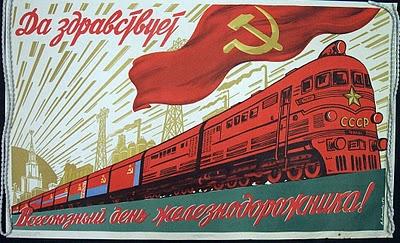All aboard for brilliant historical novel

Thomas Keneally's latest novel brings the Russian Revolution to life. By Clare Lanigan.
Since the days of Margaret 'There Is No Alternative' Thatcher, many (if not most) people have accepted as natural that economic prosperity can only be achieved through a free-market economy that flourishes as speculators make it big on the international markets. Few governments in the West, despite their political allegiances, have made any serious effort to embrace a different system over the last two decades. Even in the midst of the current collapse, official response has been an attempt to return things to the previous status quo, and public response, while angry, remains largely inchoate.
In the current atmosphere, the sheer audacity of what the Russians attempted to achieve from 1917 onwards can look naïve at best, and malevolent at worst, especially with the knowledge of the later atrocities and failures of the Soviet regime. Drummed as we are today with the message of 'there is no alternative', it's hard not to look at the Soviet experiment cynically, yet its core message - that not only is there an alternative, but that it can be achieved – was taken utterly seriously by many men and women whose standards of integrity still stand up today.
Evoking the sincerity of this belief and its potential to change the world is tricky business for any writer looking back through the miasma of 20th-century opinion, but Thomas Keneally, author of Schindler's Ark, is more than qualified to take on the challenge. In his latest novel, The People's Train (recently released in paperback), a Russian emigrant to Australia in the early years of the 20th century tells his story of organising strikes and fighting for workers' rights in Brisbane, before the action moves to Russia and the heady countdown to the October Revolution. The Australian part of the book is presented as a memoir by Keneally's hero, Artem (Tom) Samsurov, who gradually reveals the details of his journey down under; the perilous escape from a tsarist prison camp, treks across Siberia and journeys by boat through Japan and China. Artem is a committed revolutionary who believes nothing less than a complete overthrow of the capitalist system will be sufficient to bring equality to the world.
Keneally does a wonderful job of bringing this character to life; too often revolutionaries in fiction come across as either hysterical or dully obsessed with political theory, but Artem is portrayed as a thoughtful, self-aware man who nevertheless cannot and will not compromise on his ideals. He is utterly believable as a man of his time and milieu, and the conflicts he faces with his fellow emigrant Russians and with the radical female lawyer he finds himself in a complicated attachment with are entirely believable.
Australia's labour history is not a well-known topic, but the Brisbane of The People's Train is full of agitation, strikes, union meetings and corrupt police, and the feel of a country still trying to establish a conclusive identity is powerfully evoked. Indeed, the titular train is an idea for a worker-owned monorail serving Brisbane, conceived by one of Samsurov's friends. It remains unbuilt, serving as a symbol for the ever-retreating dreams of the young radicals. Australia is represented in the Russia-set section of the book by Paddy Dykes, a young journalist with the Australian Worker, who asks many of the book's crucial questions about the nature of revolution and what happens when theory meets reality.
The Australian story is more engaging than the Russian; the familiarity of the story of the Russian Revolution leads to a slightly rushed narrative in the second part of the book that isn't helped by various brief, cameo-like appearances by historical figures. However the pace recovers at the end; the momentous events of history are mirrored by equally turbulent upheavals in the minds of the central characters, with a last line that will take its place among the great endings of fiction.
Keneally leaves the question open as to whether the failure of the Soviet project was due to corruption of the original ideal, or whether the seeds of tyranny lay within it from the beginning. His characters are telling their story as they see it, nothing more. In an age where this period tends to be either glamourised or subject to revisionism, Keneally has succeeded in conveying what it was actually like to live during this unforgettable time.
One of the best historical novels of the year.
The People's Train by Thomas Keneally
Sceptre, August 2010 (paperback)
£7.99
